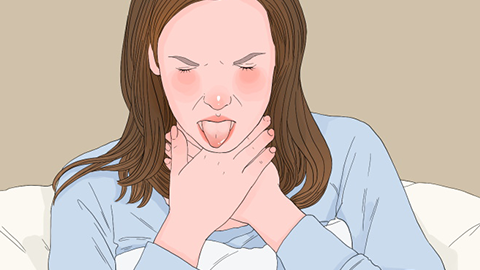What does it mean when the tongue coating turns white?
Generally, a white tongue coating may be caused by reduced saliva secretion, a monotonous diet, functional dyspepsia, oral thrush, chronic gastritis, and other factors. If discomfort occurs, timely medical consultation is recommended. Detailed explanations are as follows:
1. Reduced Saliva Secretion
During sleep at night, saliva secretion significantly decreases, weakening the tongue's self-cleaning ability. Shed epithelial cells and food debris tend to accumulate on the tongue surface, leading to a white tongue coating. Rinsing the mouth with warm water before bedtime to remove residual food particles, and brushing teeth promptly upon waking, gently brushing the tongue surface to maintain oral hygiene. Drinking plenty of water daily helps keep the mouth moist and promotes saliva secretion.
2. Monotonous Diet
Long-term excessive consumption of starchy and high-sugar foods combined with insufficient vegetable intake can disrupt the balance of oral flora, making it easier for a white tongue coating to form on the tongue surface. Adjusting dietary structure by increasing intake of fresh vegetables and fruits while reducing consumption of high-sugar and processed foods is advised. Eating slowly and chewing thoroughly, avoiding overeating, and taking a walk after meals to aid digestion are also recommended.
3. Functional Dyspepsia
Slowed gastrointestinal motility prolongs food retention in the stomach, causing gases and metabolites produced during fermentation to rise and affect the tongue surface, leading to a thick, white tongue coating often accompanied by postprandial fullness. Maintaining regular meal times, avoiding eating three hours before bedtime, and limiting spicy, greasy, and cold foods are recommended. Under medical guidance, digestive aids such as compound digestive enzyme capsules, lactase tablets, and domperidone tablets can be taken to improve gastrointestinal motility.

4. Oral Thrush
After oral mucosa becomes infected with Candida albicans, white curd-like plaques appear on the tongue surface. The white tongue coating is difficult to remove and often causes bleeding after removal. It is commonly seen in infants, young children, and individuals with weakened immune systems. Attention should be paid to disinfecting tableware; bottles and utensils for infants should be sterilized by boiling. Long-term use of antibiotics should be avoided to prevent microbial imbalance. Under medical guidance, antifungal medications such as nystatin tablets, fluconazole tablets, and itraconazole capsules can be used to inhibit fungal growth.
5. Chronic Gastritis
Long-term inflammation irritates the gastric mucosa, impairing digestive function and causing abnormal gastric acid secretion, which may lead to bile reflux. This irritates the tongue surface, causing a white tongue coating, often accompanied by symptoms such as upper abdominal pain, acid regurgitation, and nausea. A diet consisting of soft, easily digestible foods is recommended, avoiding excessively hot, hard, or irritating foods. Smoking and alcohol consumption should be avoided to reduce irritation to the gastric mucosa. Under medical guidance, medications such as omeprazole enteric-coated capsules, hydrotalcite chewable tablets, and domperidone tablets can be taken to suppress gastric acid secretion and protect the gastric mucosa.
In daily life, maintaining a regular routine, avoiding staying up late and excessive fatigue, and undergoing regular dental checkups to address oral issues promptly are recommended. If a white tongue coating persists for more than two weeks or is accompanied by symptoms such as abdominal pain and weight loss, timely medical evaluation is necessary.






